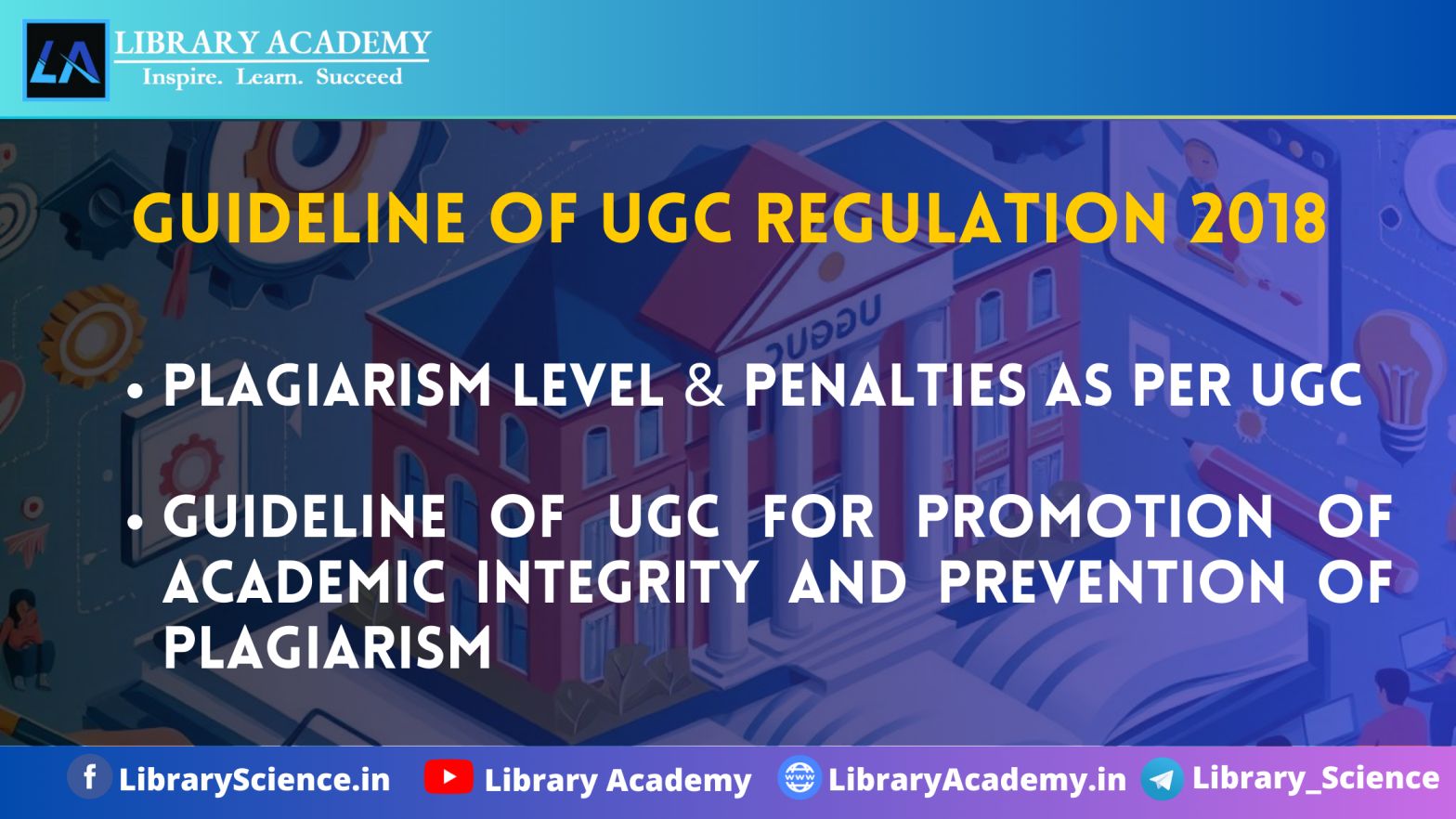Plagiarism Level & Penalties as Per UGC & Guideline of UGC for Promotion of Academic Integrity and Prevention of Plagiarism
Keyword: Guideline of UGC for Promotion of Academic Integrity and Prevention of Plagiarism, Levels of Plagiarism, Plagiarism & Penalties as Per UGC, Academic Integrity and Plagiarism in Higher Educational Institutions Regulations 2018, Objectives of Guideline of UGC for Promotion of Academic Integrity and Prevention of Plagiarism,
University Grants Commission “Promotion of Academic Integrity and Prevention of Plagiarism in Higher Educational Institutions Regulations, 2018″ outlines regulations to ensure academic integrity and prevent plagiarism in Indian Higher Educational Institutions (HEIs).
Academic Integrity and Plagiarism in Higher Educational Institutions
Academic integrity is the foundation of a credible and respected academic environment. It emphasizes intellectual honesty in proposing, performing, and reporting any scholarly activity, ensuring that the creation of intellectual property is conducted with transparency and ethical responsibility. This topic explores the concepts of academic integrity, the role of authorship, and the mechanisms in place to address plagiarism within Higher Educational Institutions (HEIs).
1. Academic Integrity
Defined as the commitment to intellectual honesty in all activities related to the creation and dissemination of knowledge.
It involves the ethical handling of research, writing, and academic work to maintain the trustworthiness of academic endeavors.
2. Authorship and Responsibility
The term “Author” includes students, faculty, researchers, and staff within HEIs who are recognized as the creators of scholarly work.
Authors bear the responsibility of ensuring that their work is original and properly attributed, avoiding any misrepresentation of sources.
3. Plagiarism
Plagiarism is identified as the act of using someone else’s work or ideas without proper acknowledgment, passing it off as one’s own.
It is a serious violation of academic integrity, undermining the value of original research and the ethical standards of academic institutions.
4. Departmental Academic Integrity Panel
A designated body within HEIs tasked with investigating allegations of plagiarism at the departmental level.
The panel plays a crucial role in maintaining academic integrity by scrutinizing cases of suspected plagiarism and ensuring that appropriate actions are taken.
5. Scope of Information
Information in the academic context includes a wide range of data, such as text, images, sounds, codes, computer programs, and databases.
The proper use and attribution of this information are essential in maintaining academic integrity.
6. Definition of Script
The term “Script” refers to various forms of academic work, including research papers, theses, dissertations, book chapters, and complete books submitted for academic assessment or publication.
However, routine academic tasks such as assignments, term papers, and project reports are typically excluded from this definition.
Objectives of Academic Integrity and Plagiarism in Higher Educational Institutions
1. Awareness: The objective is to raise awareness among students, faculty, researchers, and staff about responsible research practices, academic integrity, and the prevention of misconduct, including plagiarism.
2. Institutional Mechanisms: Establish educational and training programs within institutions to promote responsible research conduct and deter plagiarism.
3. Plagiarism Detection and Prevention: Develop systems to detect plagiarism and establish mechanisms to prevent and penalize instances of plagiarism by any member of the institution.
Levels of Plagiarism and Penalties as Per UGC
Plagiarism Levels According to UGC for Theses, Dissertations, & Research Publications
Definition of Plagiarism Levels
- Level 0: Similarities up to 10% – Considered minor, no penalty.
- Level 1: Similarities above 10% to 40%.
- Level 2: Similarities above 40% to 60%.
- Level 3: Similarities above 60%.
Penalties for Plagiarism in Theses and Dissertations
- Level 0: No penalty for minor similarities (up to 10%).
- Level 1: Students must submit a revised script within 6 months.
- Level 2: Students are barred from submitting a revised script for 1 year.
- Level 3: Registration for the program is canceled..
Penalties for Plagiarism in Academic and Research Publications
- Level 0: No penalty for minor similarities (up to 10%).
- Level 1: The manuscript must be withdrawn.
- Level 2: Manuscript withdrawal, Denial of one annual increment & Prohibition from supervising new Master’s, M.Phil., or Ph.D. students for 2 years.
- Level 3: Manuscript withdrawal, Denial of two successive annual increments, & Prohibition from supervising new Master’s, M.Phil., or Ph.D. students for 3 years.
Summary: The University Grants Commission (UGC) of India has established guidelines to uphold academic integrity and prevent plagiarism in higher education institutions. These guidelines categorize plagiarism into four levels based on similarity: up to 10% (no penalty), 10-40% (warning and resubmission), 40-60% (debarment from scholarship and promotion), and above 60% (cancellation of registration or employment). The guidelines mandate the use of plagiarism detection tools and emphasize the responsibilities of institutions in fostering a culture of integrity. Severe penalties aim to deter academic misconduct, ensuring the credibility of academic work and the integrity of the education system.
Reference: University Grant Commission
 Subscribe YouTube Channel
Subscribe YouTube Channel

